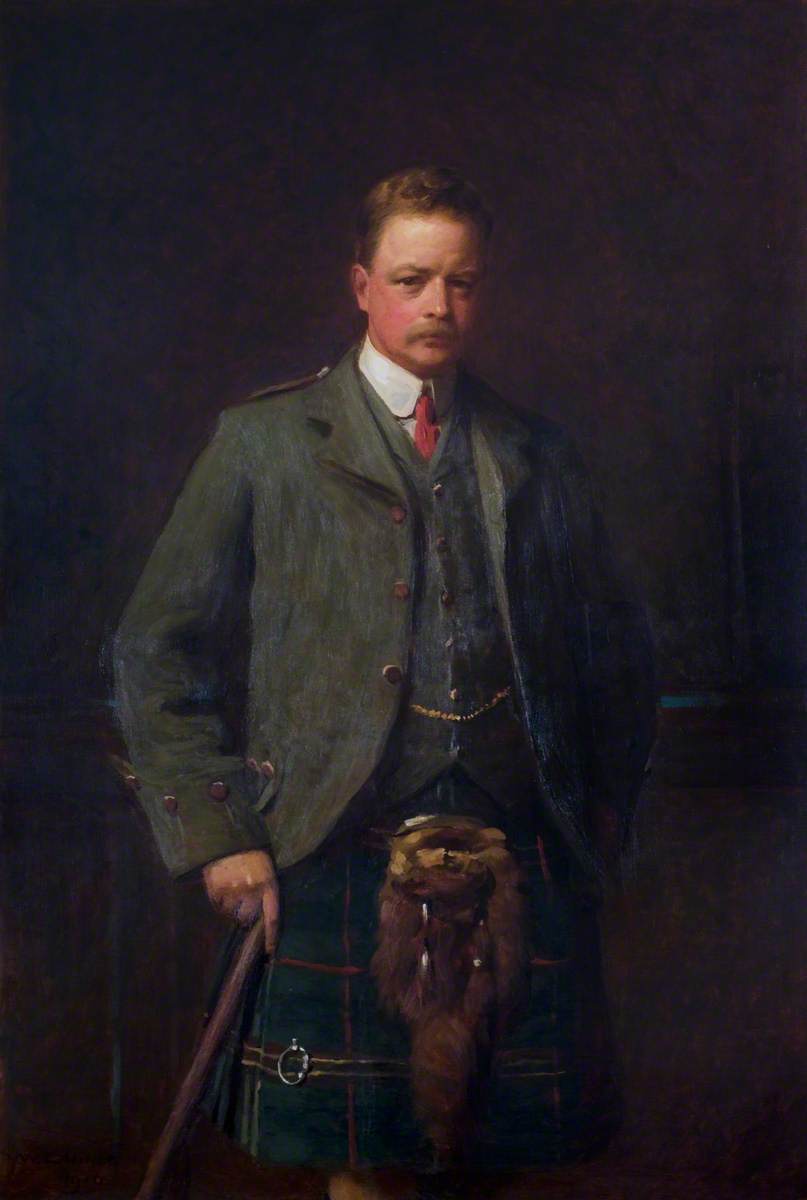Unveiling the Tapestry: Notable Kennedy Clan Members and Their Enduring Legacy
by Marcus Harris on Mar 14, 2024
Table of Content
Introduction
The Kennedy Clan, an emblem of Scottish heritage, has woven a complex tapestry through the corridors of history that extends beyond the rugged landscapes of Scotland. This storied lineage, synonymous with service, leadership, and cultural preservation, has produced figures of monumental influence. From the medieval castles that bore witness to their ascent to the global stages where their descendants left indelible imprints, the Kennedys have been a force of historical significance. In this article, we explore the lives of some of the most notable Kennedy Clan members—each a part in the grand narrative of this illustrious clan.
The 7 Most Notable Kennedy Clan Members: Multifaceted Legacy of the Kennedys
Sir Gilbert Kennedy, 1st Lord of Kennedy (1405-1489)
Gilbert Kennedy, 1st Lord Kennedy, born on 22 February 1405, was a prominent figure in 15th-century Scotland. As the son of Sir James Kennedy and Lady Mary Stewart, the daughter of King Robert III, he had strong royal connections. His political acumen led him to serve as a Regent after the death of James II, guiding the young James III.
Kennedy's first marriage to Catherine Maxwell produced key offspring, including John Kennedy, who succeeded him as the 2nd Lord Kennedy. His daughter, Catherine Kennedy, further connected the family to Scottish nobility through her marriage. His second marriage to Isabel Ogilvy, after 1460, shows his continued alliance-building.
Kennedy was ennobled as the 1st Lord Kennedy between 1457 and 1458, reflecting his status and influence. His roles as Keeper of the Castle of Lochdoun and Constable of Stirling Castle underscored his military importance. Gilbert Kennedy's death on 27 March 1489 marked the end of an era, but his legacy lived on through his children and the enduring prominence of the Kennedy name in Scottish history.
James Kennedy, Bishop of St. Andrews (c. 1405-1465)
James Kennedy was a leading ecclesiastical figure and statesman of his time. As Bishop of St. Andrews, he was instrumental in the religious and political spheres of 15th-century Scotland. Kennedy founded St. Salvator's College at the University of St. Andrews in 1450, which demonstrates his commitment to education and his enduring legacy. He was also a trusted advisor to King James II of Scotland, exerting considerable influence over national matters.
Archibald Kennedy, 4th Marquess of Ailsa (1872-1943)
Archibald Kennedy embodied a blend of tradition and ambition. Born into Scottish aristocracy, he carved his own path before assuming the family mantle. Educated at elite institutions like Eton College and Trinity College, Cambridge, he defied expectations by choosing a career in law, qualifying as a barrister in 1897.
Yet, military service beckoned. Joining the Royal Scots Fusiliers, Archibald demonstrated courage and leadership during the Second Boer War (1900-1902), earning medals that attested to his bravery. His commitment to his country continued through World War I, showcasing his multifaceted character.
In 1938, at the age of 65, Archibald's life took a preordained turn. He inherited the prestigious title of Marquess of Ailsa upon his father's passing. This elevated him within the British nobility, placing him at the helm of the Kennedy family legacy. However, his leadership extended beyond inherited titles. He actively served as Deputy Lieutenant of Ayrshire, demonstrating his dedication to public service. Additionally, his role as a Fellow of the Royal Scottish Geographical Society hinted at his intellectual curiosity and interest in exploration.
Despite marrying Frances Emily McTaggart-Stewart in 1903, their union remained childless. Archibald passed away in 1943, leaving the Marquessate to his younger brother, Charles Kennedy.
Archibald Kennedy's life journey transcended a single title. He was a soldier, a scholar, and a leader who embraced both tradition and personal ambition. This revised passage offers a more nuanced portrayal while remaining concise.

John F. Kennedy (1917-1963)

Dr. Patricia Kennedy
David Kennedy (1825-1886)

Marjory Kennedy-Fraser (1857-1930)
Marjory Kennedy-Fraser played a pivotal role in preserving Scottish musical heritage. A talented singer and musicologist, she collected, adapted, and published traditional Hebridean folk songs. Her publications, including "Songs of the Hebrides," were crucial in bringing these regional folk songs to a broader audience. Her work helped to ensure that the rich traditions of Scottish music would not be forgotten and could be enjoyed by future generations.

Conclusion
Frequently Asked Questions
Have any buildings or landmarks been named after members of the Kennedy Clan?
There are several landmarks, such as the Kennedy Park in Scotland and the John F. Kennedy School of Government at Harvard University, that have been named in honor of Kennedy Clan members.
Are there any charitable foundations or initiatives started by Kennedy Clan members?
Yes, members of the Kennedy family have established several charitable foundations and initiatives, such as the Kennedy Foundation and Special Olympics, which were started by Eunice Kennedy Shriver.
Are there any annual events that commemorate the Kennedy Clan's contributions?
There are various memorial events and gatherings that commemorate the Kennedy Clan's contributions, such as the annual John F. Kennedy Profile in Courage Award ceremony and remembrance ceremonies at the John F. Kennedy Presidential Library and Museum.
What are some of the books written about the Kennedy Clan?
There are numerous books written about the Kennedy Clan, ranging from biographies to accounts of specific periods in their lives. Notable examples include "The Kennedy Women" by Laurence Leamer, "An Unfinished Life: John F. Kennedy, 1917–1963" by Robert Dallek, and "The Kennedy Curse" by Edward Klein.
How do the Kennedys connect with their Irish roots, and what impact have they had in Ireland?
The Kennedys connect with their Irish roots through family visits to their ancestral home in Ireland and participation in Irish-American events. They have had a significant impact in Ireland, with JFK's visit to the country in 1963 remembered fondly and inspiring a lasting affinity between Ireland and the Kennedy family. Additionally, their support for the peace process in Northern Ireland has been noted.






